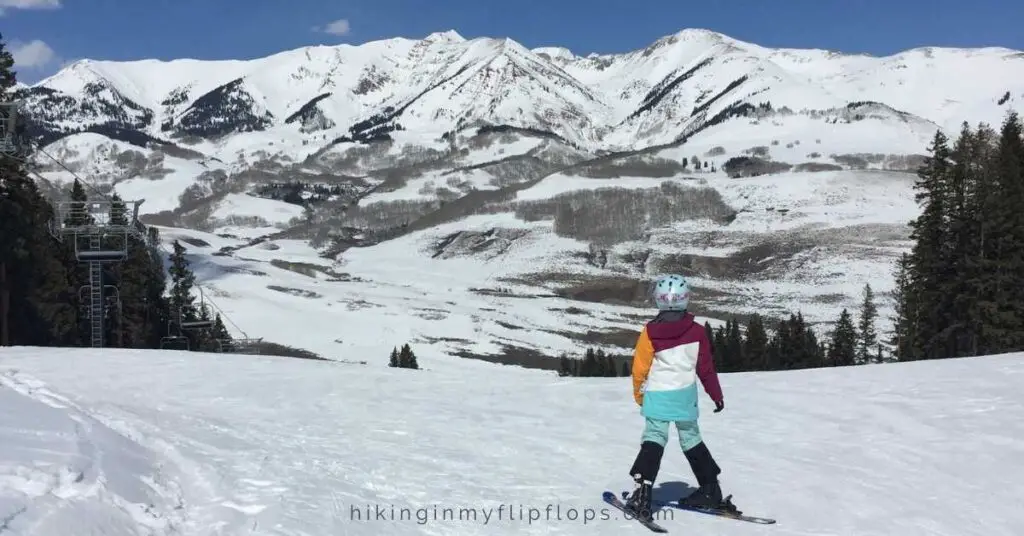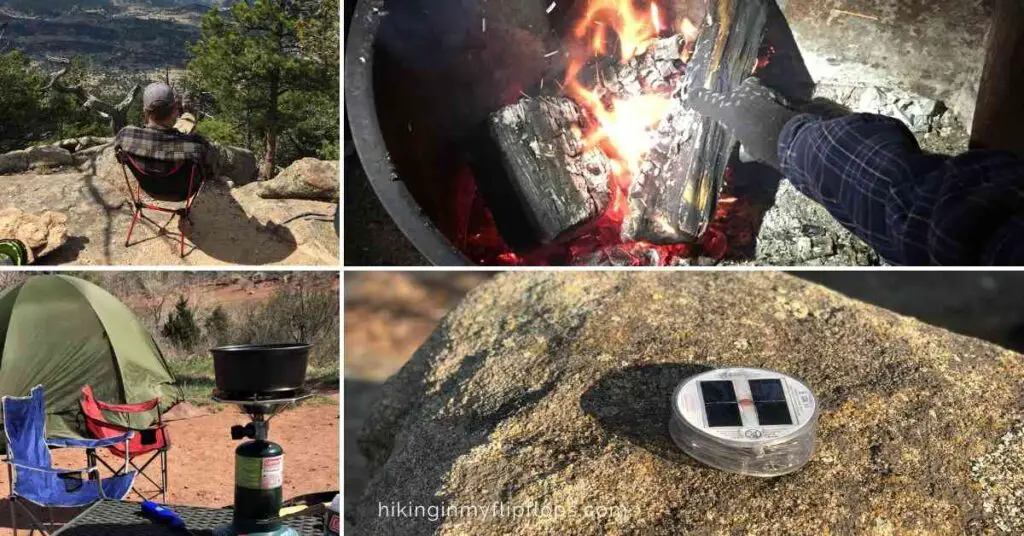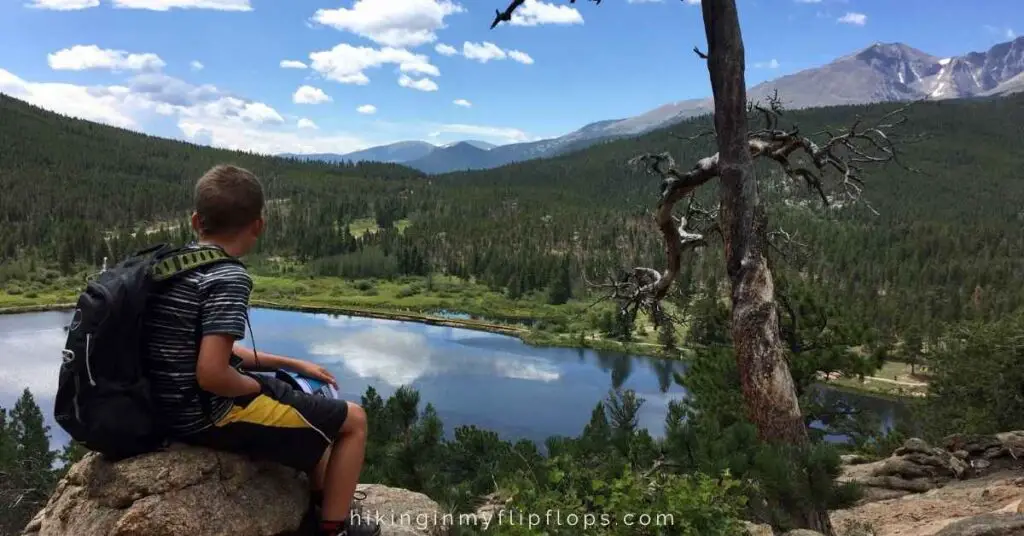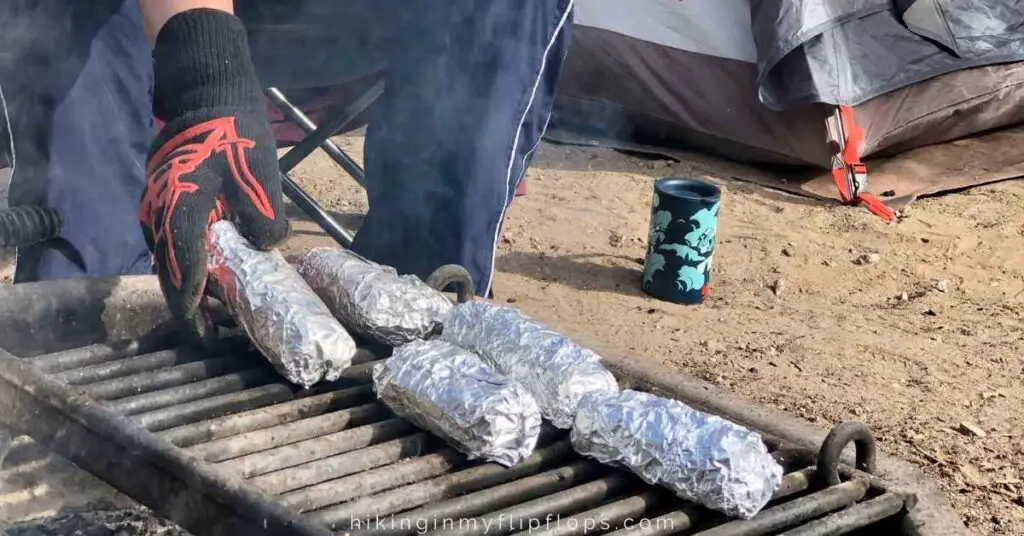There are many ways to get outside and enjoy the great outdoors. Hiking, camping, and backpacking are some of the most common ways to get out into the wilderness, but do you really know the difference between these outdoor adventures?
Here’s a quick guide to the difference between hiking and backpacking (and car camping vs backpacking), so you know which is the right adventure for you.
(This post may contain affiliate links. Please read our disclosure policy for more information.)
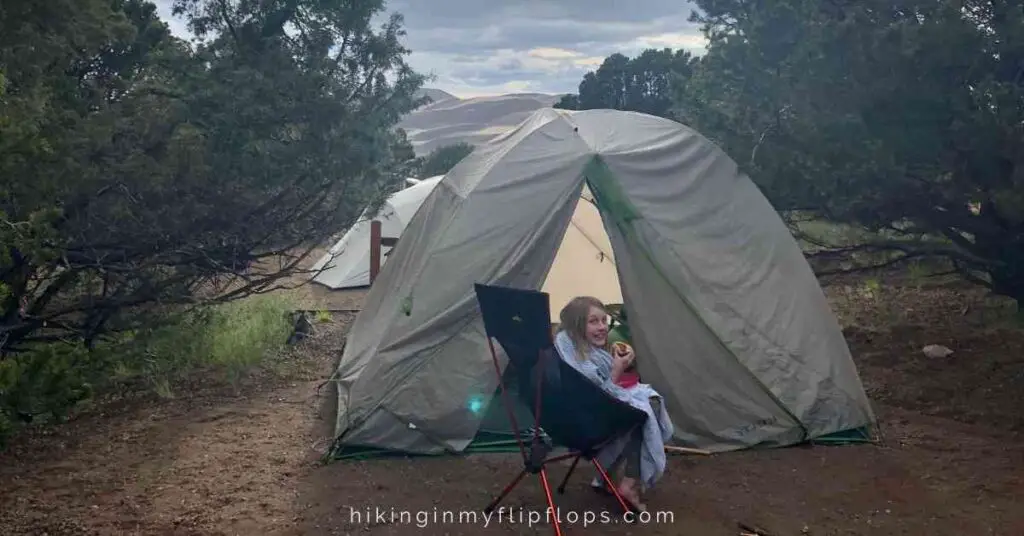
Why Does the Difference Between Hiking and Backpacking Matter?
In a way, they really don’t. You can go out to enjoy the outdoors in any way that you feel comfortable.
But if you’ve been asked to join a group for one of these outdoor activities, you’re going to want to know what exactly you signed up for. And knowing the differences between hiking, camping, and backpacking is helpful for researching gear, locations, and tips.
Comparing Hiking, Backpacking, and Camping
The differences between camping, hiking, and backpacking are simply in whether you spend the night outdoors or not and whether or not you’re on foot.
There are also differences in the gear and equipment required and in skill levels to make sure you are safely prepared for the adventure.
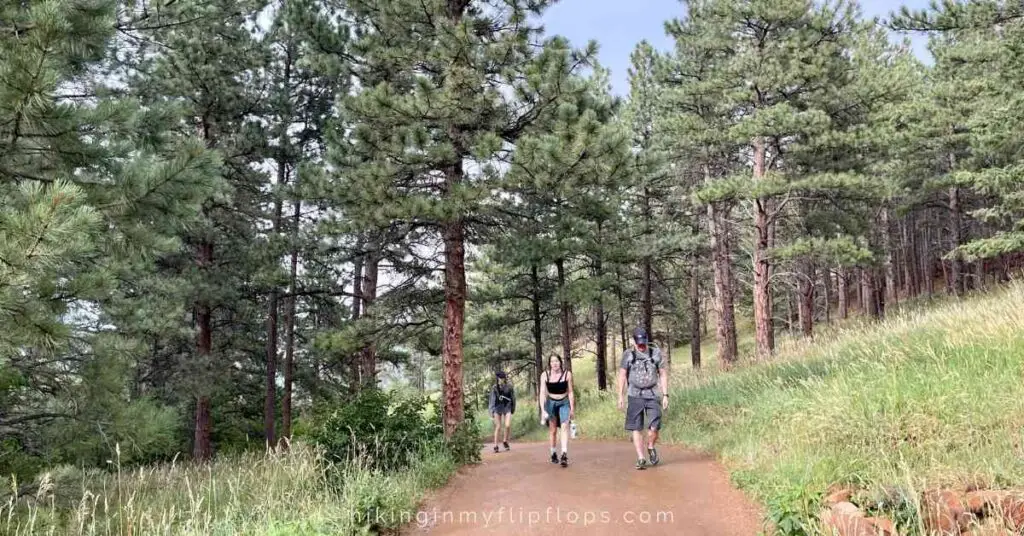
What is Backpacking vs Hiking?
Hiking can refer to day hikes or overnight adventures making the key difference between hiking and backpacking is the length of your adventure. For the most part, hikers and backpackers stick to an established trail for safety and environmental reasons.
Day hiking means hiking trails that are generally less than 10 miles and take just a few hours to complete is a day hike. This is a very rough estimate, based on an average hiking pace of 2 miles per hour. Day hikers enjoy carrying light loads since not a lot of gear is needed for this activity, but the longer the hike, the more gear you should have in your pack.
Basic day hiking gear includes:
- a hiking backpack
- hiking shoes (or hiking boots)
- hiking snacks, like trail mixes or bars
- water bottles filled with about a half-liter of water per hour of hiking, per person
- sun protection
Backpacking is when hiking extends into an overnight trip. These are often advanced hikes due to the length of many trails into the backcountry.
Backpacking gear requires more careful planning to minimize pack weight while making sure you have everything needed to stay safe and comfortable.
Backpackers carry a large, heavy pack that includes everything needed for a night or more in the wilderness: a tent, sleeping bag, change of clothes, cooking equipment, and food.
- safety items like insect repellent, a compass, and a way to call for help.
- access to clean water, whether it’s a reliable, clean water source or a way to purify water (like iodine tablets or the LifeStraw Peak Squeeze water filter)
- hiking or backpacking boots that can withstand high trail mileage
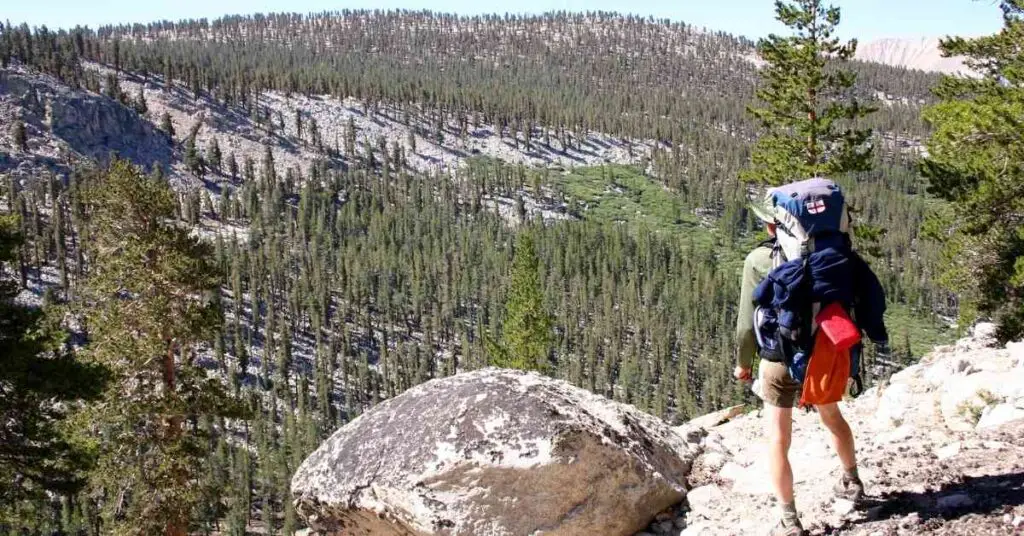
Similarities of Hiking and Backpacking
You need good, sturdy hiking shoes that can handle uneven terrain (or even technical terrain) on trails with a high difficulty level.
Whether you’re backpacking or day hiking, research the trails in advance, so you know what to expect and can be prepared.
Let someone who is not going with you know your plan, including the trails you’ll be hiking and how long you’ll be gone in case something happens.
Thru-Hiking and Section-Hiking
To add to the confusion, there are types of backpacking with references to hiking. These trips can last from days to weeks or even months.
Thru-hiking is a hiking trail that can be hundreds (or thousands) of miles long. The most well-known thru-hikes are the Pacific Crest Trail (2,650 miles), the Appalachian Trail (2,190+ miles), and the Colorado Trail (485 miles). Thru-hiking is an intense physical challenge – and mental challenge – that requires significant planning and training to complete.
Section-hikers complete smaller sections of the trail (hence the name) at a time rather than spending weeks or months on the trail
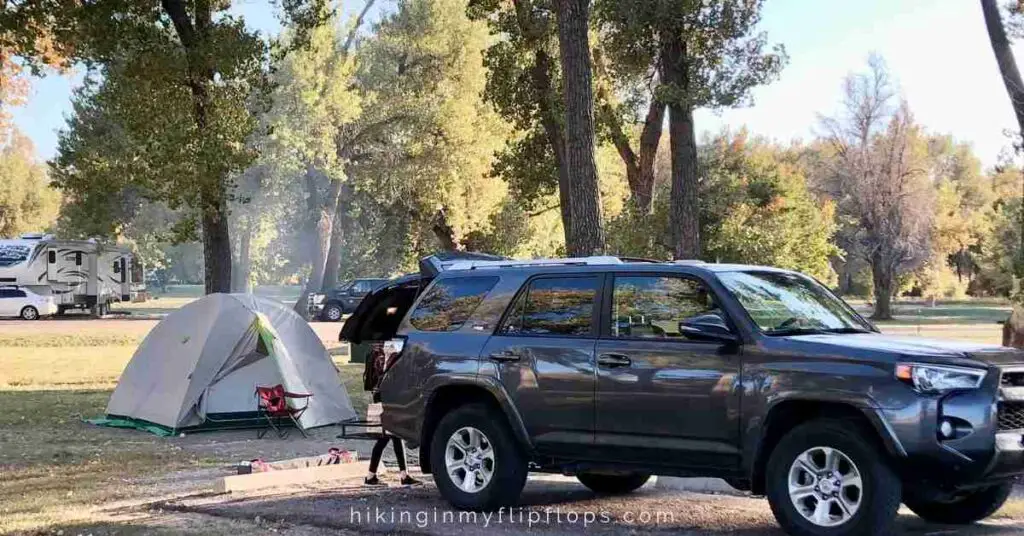
What is Camping vs Backpacking?
Hiking vs backpacking is about the length of the trip, but the difference between camping and backpacking is generally how you get to your campsite – especially when talked about as car camping vs backpacking. Backpacking is simply one of the different types of camping.
Camping often means getting to the campsite with a car or other vehicle. A backpacking trip means hiking to the campsite.
Camping Gear for Backpacking vs Camping
The gear required for the two types of overnight adventures is similar, but only backpackers need to worry about carrying a heavy load with them.
- Backpacking vs camping tent, sleeping bag, and sleeping pad differs in weight and size. Backpackers can’t afford the weight or size of a large camping tent like car campers can enjoy, nor can they carry a comfy air mattress on the trails.
- Kitchen equipment is also smaller and lightweight for backpacking and only includes equipment that is absolutely required.
- Backpacking food must be non-perishable since there is no access to coolers of ice to keep food cold.
- Backpackers are often camping in bear country, which requires carrying a bear-safe canister or knowing how to hang food and toiletries out of reach of bears.
Backpacking vs Hiking and Camping FAQs
Though these terms are sometimes used interchangeably, there can be a difference between hiking and backpacking and between backpacking and camping. When you’re invited to join in on any of these outdoor activities, it’s good to know the difference between hiking and backpacking or camping. Make sure you know what you’re in for so you can appropriately prepare for the adventure.
Click below to save this guide to backpacking vs hiking and camping on Pinterest!

